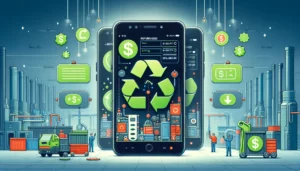As the second decade of the millennium nears its sunset technological advancements have begun redefining businesses across industries. The retail industry was disrupted due to the emergence and explosion of e-commerce or online stores sending shock waves to offline or brick & mortar stores. While online stores caught up on sales volumes, delivery and after-sales service, offline stores could only sit and watch the speed at which online stores positioned themselves as credible alternatives.
There are enough challenges as offline stores look to stop the onslaught of e-commerce stores. From inventory management to logistics to product placement to consumer purchase patterns to utilization of data, the challenges will create unnecessary hurdles as retail stores hope to curtail the effect of e-commerce stores. The only way to mitigate these challenges and move ahead will for offline stores to adopt retail technological solutions.
Technology to the rescue
Well, technology is for anyone who adopts it and that has proven true in the case of brick & mortar stores. Brick & Mortar stores are fast adopting retail technology solutions to beat the online stores at their own game. While the physical retail store as such will be the mainstay of the offline retail strategy, retail solutions will enhance the operations and performance of the store and help build better customer relationships.
Let’s observe some ways retail solutions will help offline stores evolve and compete with their online adversaries –
Store Format: Going forward, offline stores will use technology to redefine the store format, the feel and function. A store cannot evolve if it ‘’behaves’’ and functions the same way it has been doing for decades. Retail solutions will help stores redefine their format from product placement to billing to queue system bringing in the much-desired comfort and convenience to offline shopping.
Omni-channel strategy: The customer of today is a multi-device user and has time constraints. Shoppers these days browse for products on the web and visit stores to have a ‘’feel’’ before making the purchase. To cater to a more knowledgeable generation of shoppers who are also tech-savvy, retail solutions will help offline stores with an omnichannel marketing strategy. This strategy will help stores target customers across various devices and touch points gradually bringing them into the sales funnel.
Personalization: It is the era of personalization, and the retail industry is no exception to that. Stores will be expected to know and understand customers in depth so as to create a personalized experience for them during shopping. Retail solutions will help stores gather and analyze data on customers via their purchase history, products or brand preferences, pricing preferences and other shopping details. This mapping of customers will in turn help stores personalize the shopping experience for each customer. Retail solutions will also equip the sales associates and another in-store personal with enough data to be able to provide the best possible customer service and shopping experience for customers.
Browse online, purchase offline: This would be the strategy going forward and stores adopting this strategy will equip themselves to counter the giants of online shopping. The customer of today is mobile and seeks information at the tap of a button. Retail solutions can help stores build an online presence for customers to access relevant information while on-the-go. The solutions will also allow stores to track the customer footprint online and help redesign the offline strategy.
Another great advantage of having customers browse online and purchase offline is the reduction in delivery charges as customers will themselves come and pick the orders.
Smoother shopping experience: Previously, an offline shopping experience meant walking down the stores, going through the product aisles, standing in long queues and getting billed. Retail solutions are promising to change the experience of customers for the better. To transcend barriers and make for a more smoother shopping experience, stores will implement technologies such as RFID, Beacons, Digital signage, Bio-metric security and Self-checkout that will reduce the shopping time and ensure comfort for the customers.
Stores will also come up with flexible pick-up options, same day delivery, mobile payments, loyalty programs and special offers to actively engage customers and strengthen the relationships.
Analytics to reimagine shopping: Tons of data is generated from the time customers enter the store to their exit. Previously, this data was not captured and whatever was captured just sat idle in the computer systems. Retail analytics is changing the way stores see data. Data has become so essential to study and understand customers and is providing valuable insights and actionable intelligence. Retailers have grown much more knowledgeable about customer behavior, purchase patterns, and trends, all thanks to retail analytics. Analytics is also helping retailers take faster and more informed decisions leading to better business outcomes.
Data analytic solutions have never been so important to stores as they help optimize operations, enhance customer shopping experience and drive validated business decisions.
Retail solutions have become the savior of sorts for brick & mortar stores even they strive hard to sustain the competition from their online counterparts. These technological solutions will reimagine the way stores approach customers and help them create a more personalized shopping experience for customers. Going forward, retail solutions will play a key role in the performance of the stores by equipping them in the areas of inventory management, logistics, customer analysis, billing and in-store experience to name just a few.




